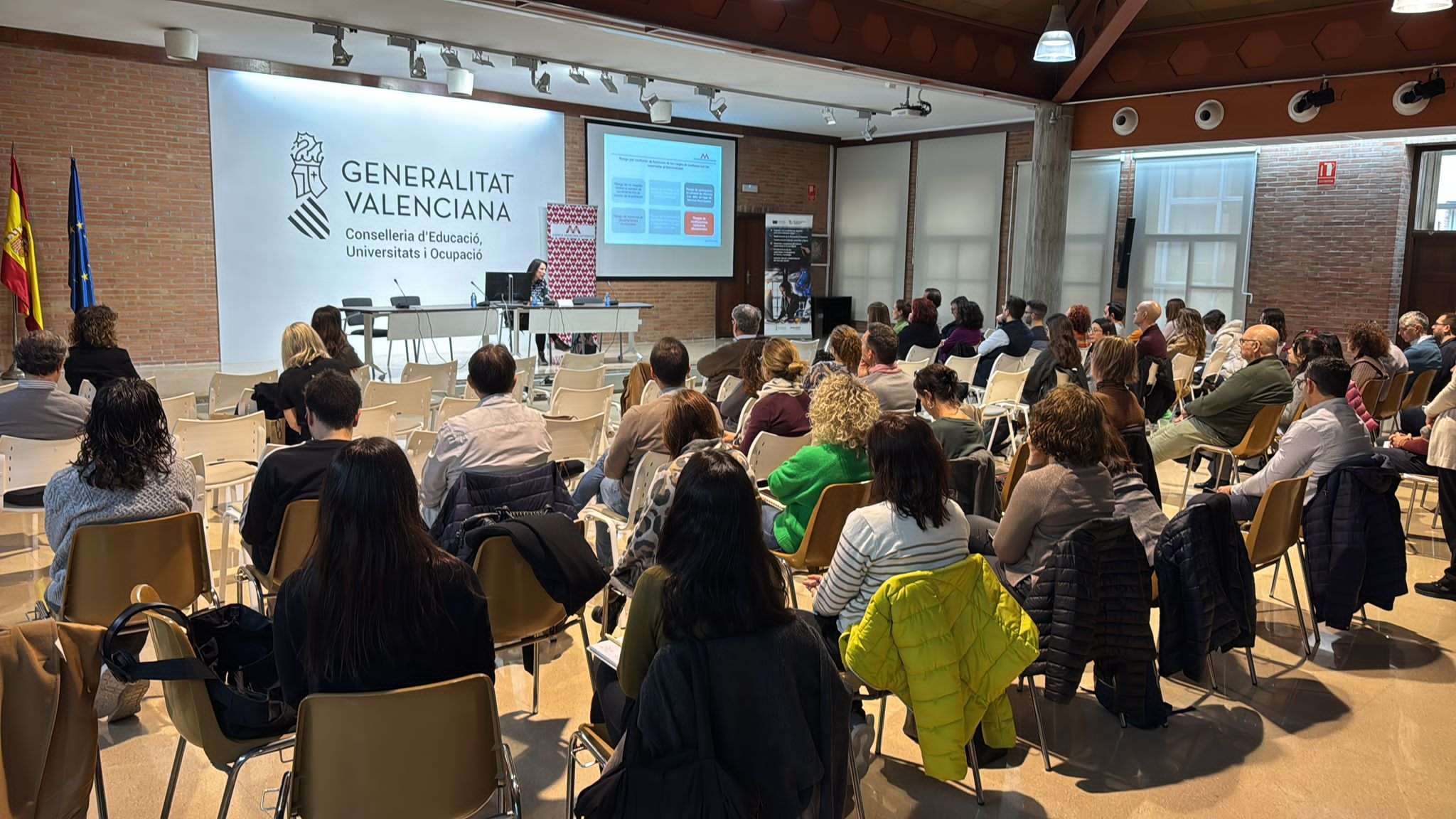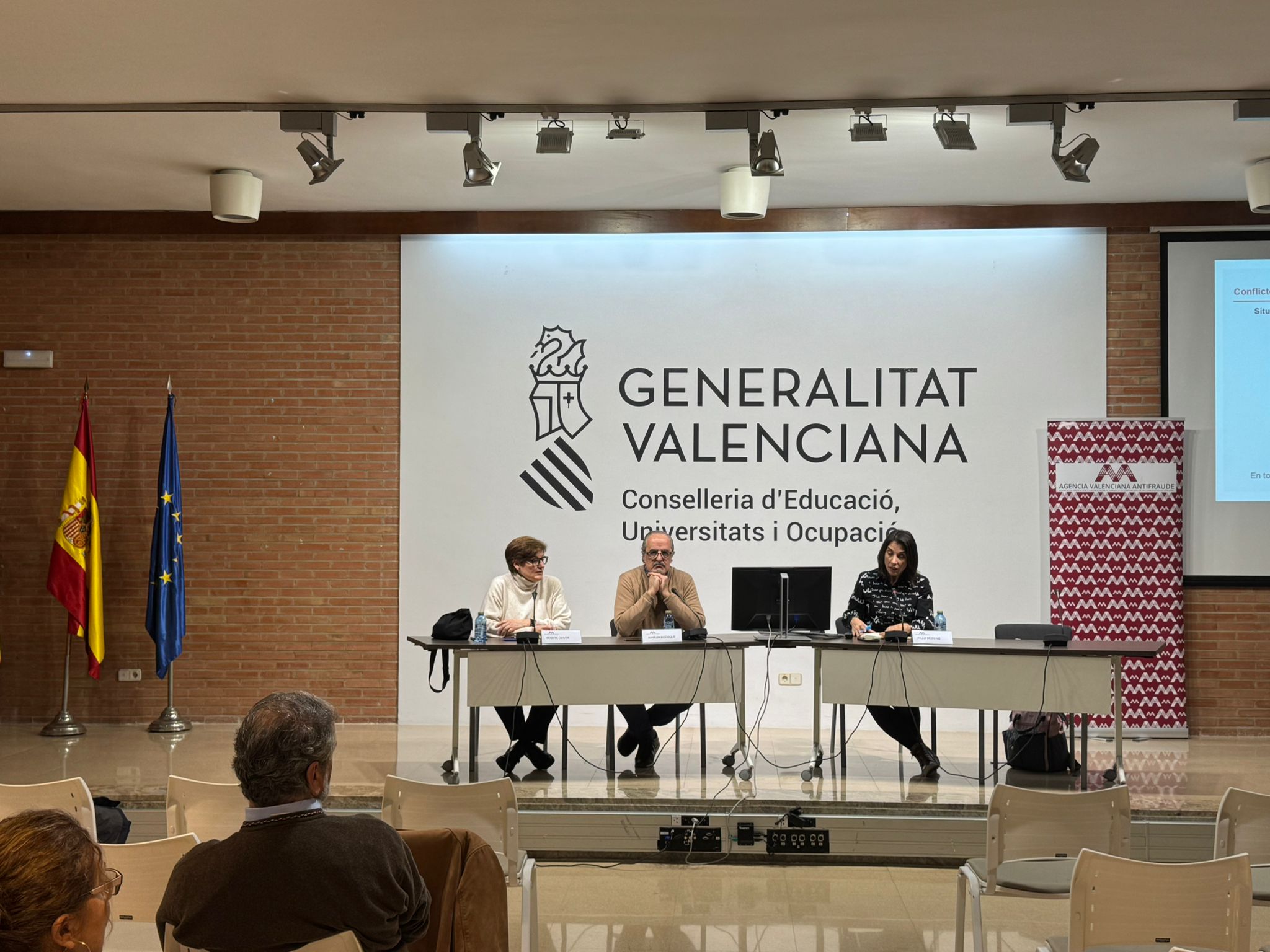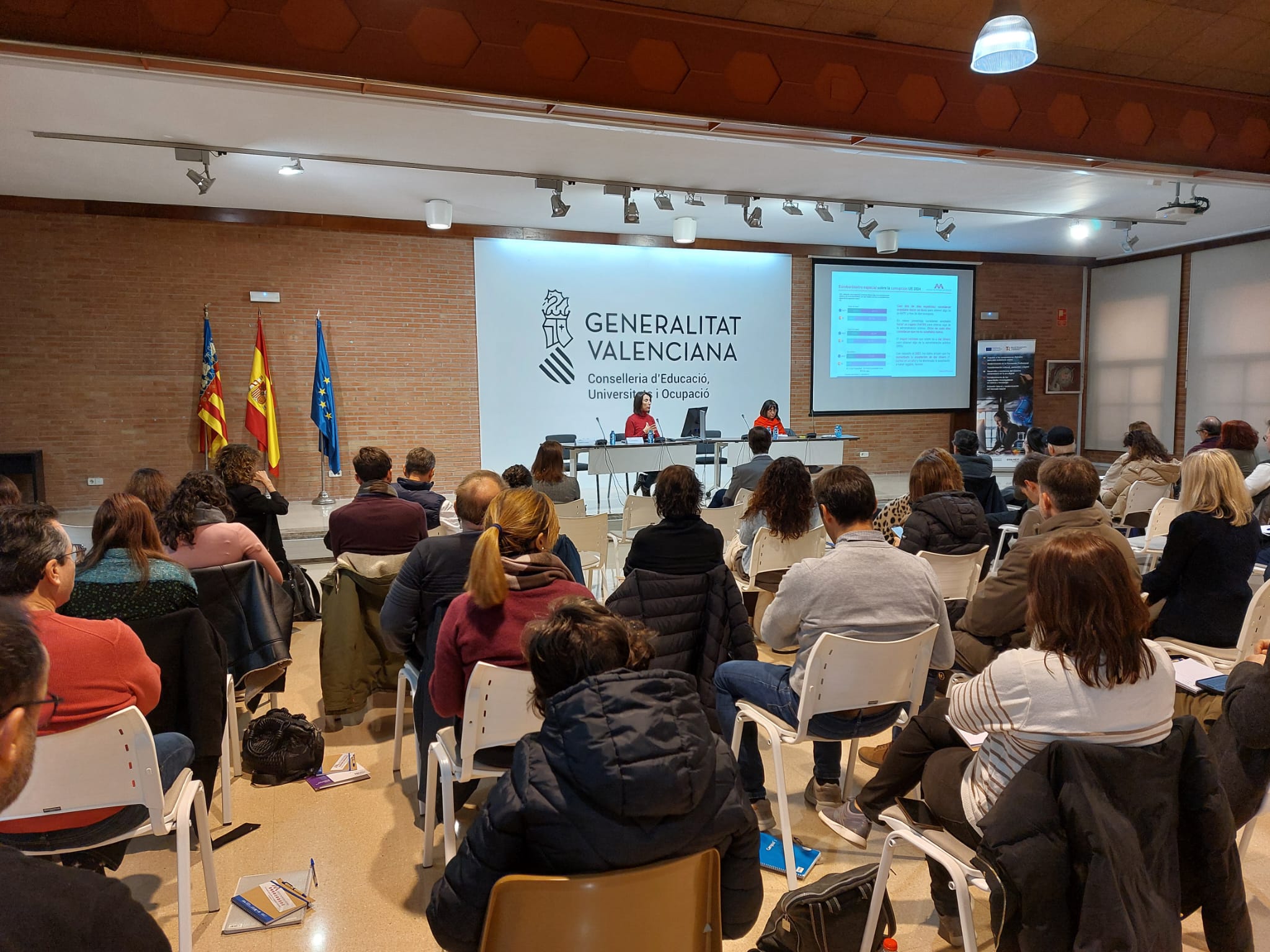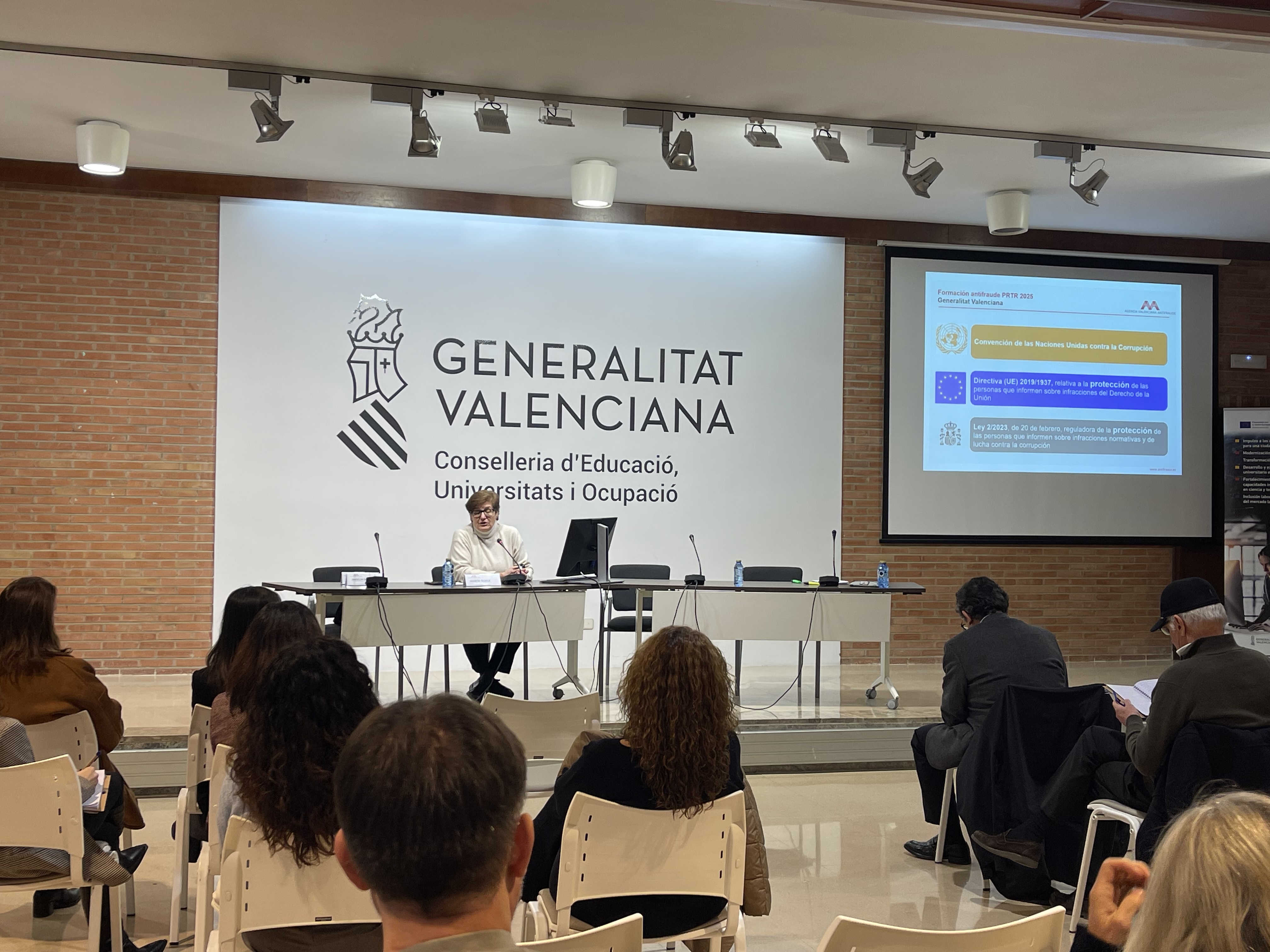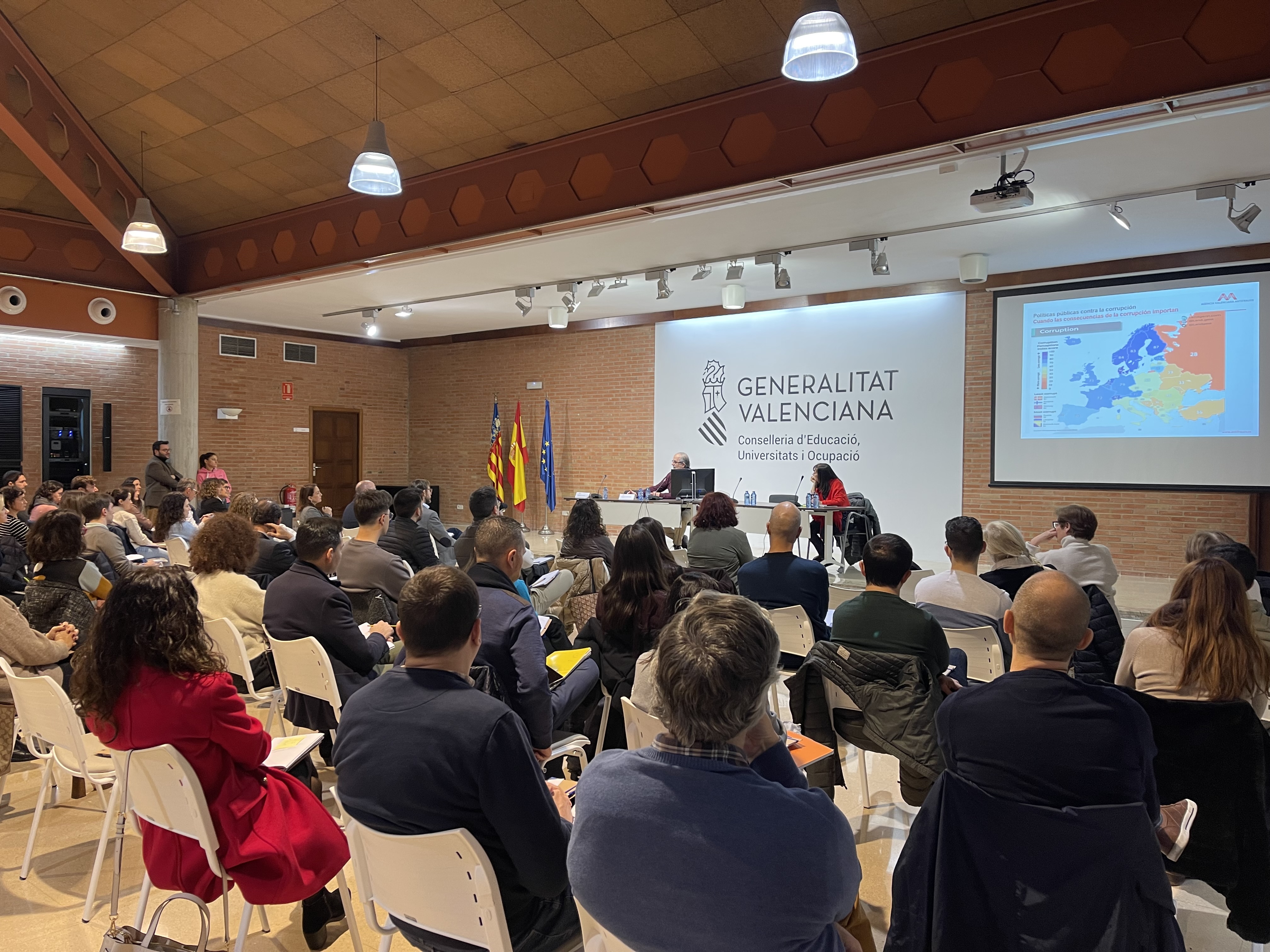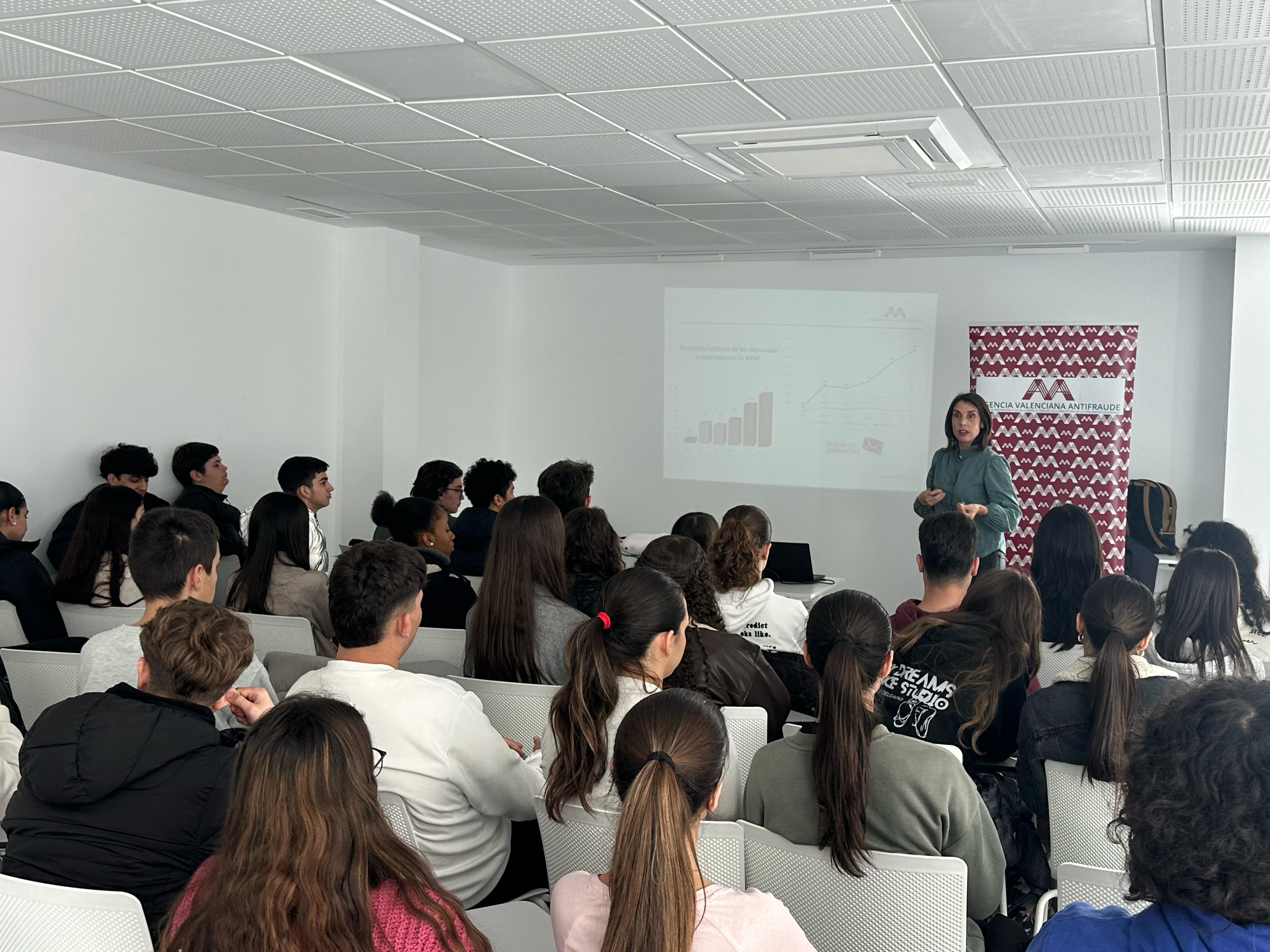Valencia, March 12, 2025. The Aragonese Institute of Public Administration has organized the conference “Prevention of fraud and conflict of interest in the management of European funds” given by the Training Area of the Valencian Anti-Fraud Agency (AVAF), with more than 150 attendees.
The session began with the intervention of Anselm Bodoque, acting coordinator of the Area of Training, Participation, Communication and Relations with other entities of the AVAF, who presented the institutional system of the fight against corruption, from the international framework of the United Nations to its application in Spain.
Next, Pilar Moreno, a technician in the area, highlighted the relevance of the culture of public integrity and the identification of risks of fraud and corruption in the administration.
For her part, Marita Oliver, technician in the AVAF Training Area, focused on the information systems established in Law 2/2023, of 20 February, regulating the protection of people who report regulatory breaches and the fight against corruption.
The day concluded with a participatory workshop-debate on the management of conflicts of interest, generating great interest among the attendees.
If your public administration would like specialised training in integrity and corruption prevention, you can write to: formacion@antifraucv.es.



